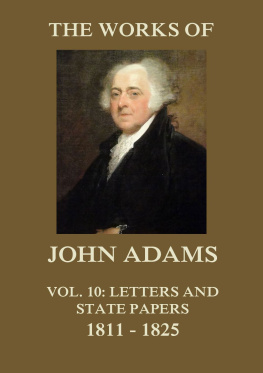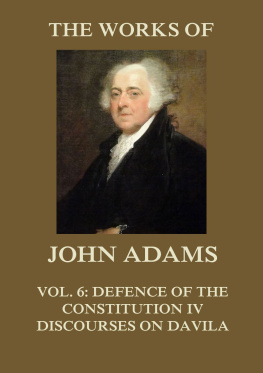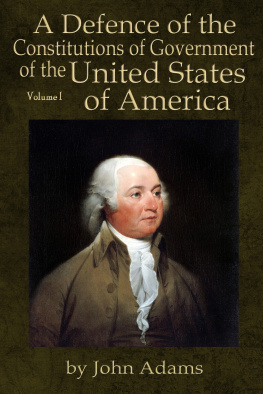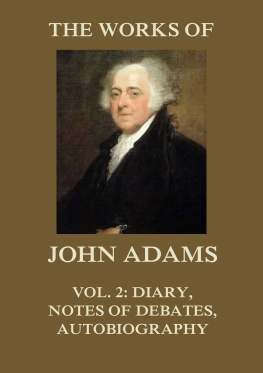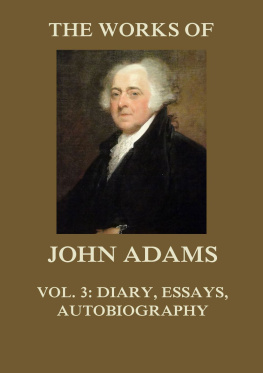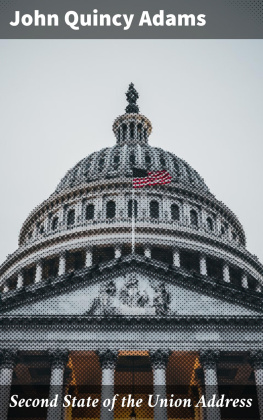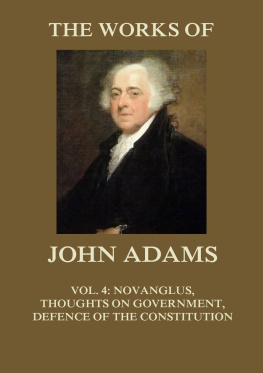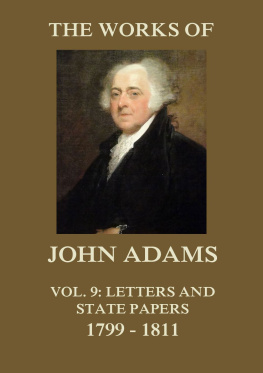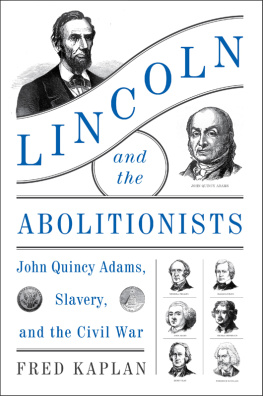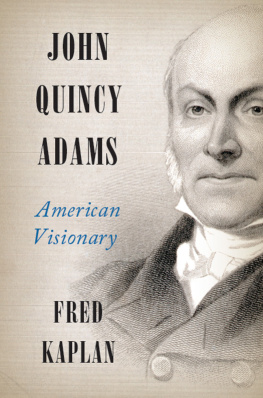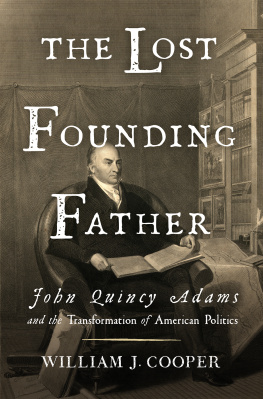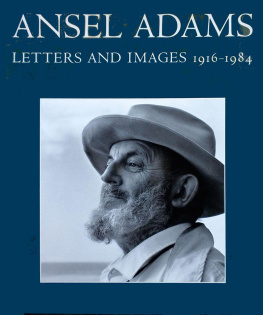GENERAL CORRESPONDENCE. CONTINUED
TO BENJAMIN STODDERT.
Quincy, 15 October, 1811
Dear Stoddert,
Your obliging letter of August 16th was presented to me by your son-in-law, Dr. Thomas Ewell, and his amiable lady, your daughter. Although I was confined with a wounded leg, which is not yet healed, and afflicted with a series of misfortunes, afflictions, and deaths among my tenderest connections, such as rarely happens to any man even in this troublesome world, I was not the less obliged to you for giving me an opportunity of seeing this sensible and amiable couple. These causes, however, have retarded my answer, and I hope will plead my excuse. I am happy to hear that your health is good, and I hope your happiness unalloyed.
I am as happy as ever I was in my life, as happy as I can ever expect to be in this world, and I believe as happy as any man can be, who sees all the friends of his youth dropping off about him, and so much sickness among his nearest relations, and who expects himself to drop in a very short time. Public affairs move me no more than private. I love my country and my friends, but can do very little for either. Reconciled and resigned to my lot in public and private, I wait with patience for a transfer to another scene.
After an introduction so solemn and gloomy, you will be surprised to find me turn to so ludicrous a subject as friend Timothy. You have seen his addresses to the people, in which he has poured out the phials of his vengeance against me, after having nourished and cherished it in his bosom a dozen years. He has implicated General Sam Smith and his brother Robert Smith, the late Secretary of State, in a manner that ought in my opinion to bring them out in vindication of themselves and me.
God knows, I never made any bargain with them or either of them. I never knew or suspected that they had any animosity against Pickering, more than they had against you or McHenry, Wolcott or Lee. No hint was ever given to me, directly or indirectly from either, that they wished Pickering removed, or that they would vote for me on any condition, or in any circumstances whatsoever. When I appointed Winchester Judge, in opposition to the wish of Robert Smith, as you know very well, I had the best opportunities to conciliate the Smiths, if I had been so disposed. Pickering knows this as well as you. How, then, can he tell such an abominable story? I cannot think that he believes it himself. Had I not scruples about setting an example of a Presidents vindicating himself against such attacks from a mortified, disappointed, and vindictive minister, I should be at no loss for reasons to justify the removal of Mr. Pickering.
B. STODDERT TO JOHN ADAMS.
Bladensburg, 27 October, 1811
I sincerely thank you for your kind letter of the 15th. It always affords me the highest satisfaction to hear of you and from you, and more particularly when I hear favorable accounts of your health and contentment.
I have seen and regretted the attack of Colonel Pickering on you, in a point affecting your moral character. In relation to any intrigue of my countrymen, the Smiths, with you, for his removal from the office of State, I have at all times felt the strongest conviction that you never did descend to such baseness, not only because I knew you were incapable of such degradation, but because I had reason to know that there was no kind of private intercourse between you and General Smith (and his brother was not at the seat of government), about the time of Colonel Pickerings removal. I knew it from this circumstance. A day or two before the New York election, in which Colonel Burr exerted himself with so much success as to produce a result that disappointed every body, and at a moment when members of Congress and all about the government believed that city would be entirely federal, General Smith and a Senator of high standing called on me at my office, and expressed their satisfaction with most of your measures, though disapproving of some which they seemed disposed rather to ascribe to the influence of others than to you, and signified a desire to have a friendly interview with you, and asked my opinion if such an interview would be agreeable. My reply, in substance, was, that I could not doubt it, but that I would speak to you on the subject, and let them know.
It so happened that I did not speak to you before the result of the New York election was known in Philadelphia. This result afforded Mr. Jefferson a prospect of the Presidential chair he seemed not to have had before. But for this result, I question whether it would not have been decided, about that time, by his friends, to suspend his pretensions for four years longer, and that their support, if from no other motive, for the chance of having influence in your administration, should be given to you.
If I never afterwards mentioned to you my visit from the General and the Senator, it was because I thought I perceived that their views had changed, with the change of prospect occasioned by the result of the New York election. They spoke to me no more, and I am very confident they avoided you.
I am not good at remembering dates; and, never meaning to be a public man, I never kept memoranda of any political transactions. But I believe this election was just before the close of the session of Congress; and that at the close, or a day or two before, Colonel Pickering was removed. On the morning of the day of the removal, you communicated to Mr. Lee and myself, who chanced to meet at your house without being summoned, your intention, and observed, your mind had been made up on the subject before the commencement of the session, but that, to avoid a turbulent session (Colonel Pickering having many warm friends in both Houses), you had delayed to take the step until the close of the session. You said you respected Colonel Pickering for his industry, his talents, and his integrity, but mentioned instances to show that he wanted those feelings a Secretary of State should possess for the character of a President, and wanted temper to enable you to make peace with France, or preserve it with England; and, upon something suggested by Mr. Lee or myself to induce reconsideration on your part, you added, that you felt it a sacred duty to make a change in the Department of State, and proposed, that Mr. Lee or myself should communicate your decision to Colonel Pickering in terms least calculated to hurt his feelings. We both too sincerely respected him to undertake a task so disagreeable. I have never since conversed with Mr. Lee on this subject; but I do presume, were he to relate the occurrence, his relation would agree substantially with mine.
Colonel Pickering, like most honest, warm-tempered men, may be too partial, perhaps, in tracing to the best motives the actions of his friends, and too prone to ascribe to the worst the conduct of those whom he does not like. After hearing of the prediction of Mr. R. Smith at Annapolis (which I presume has been within the last two years), made ten or twelve days before his removal, that he would be removed, it was not extraordinary that he should imagine Mr. R. Smith, his brother, the General, and others, had successfully intrigued with you for his removal as the price of their support. And when he made the charge against you, I cannot, from what I think I know of his character, persuade myself for a moment to doubt that he did most religiously believe in its truth.

